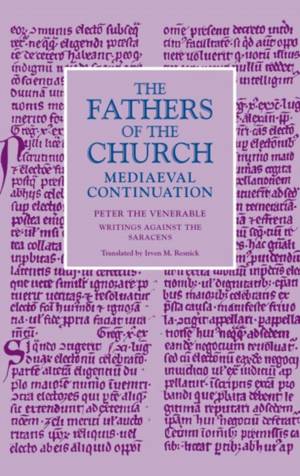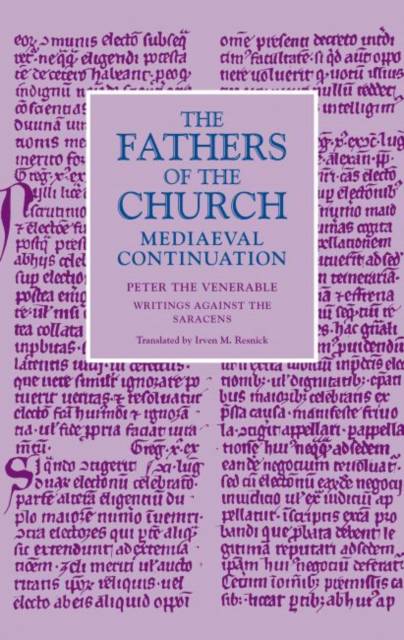
Bedankt voor het vertrouwen het afgelopen jaar! Om jou te bedanken bieden we GRATIS verzending (in België) aan op alles gedurende de hele maand januari.
- Afhalen na 1 uur in een winkel met voorraad
- Gratis thuislevering in België
- Ruim aanbod met 7 miljoen producten
Bedankt voor het vertrouwen het afgelopen jaar! Om jou te bedanken bieden we GRATIS verzending (in België) aan op alles gedurende de hele maand januari.
- Afhalen na 1 uur in een winkel met voorraad
- Gratis thuislevering in België
- Ruim aanbod met 7 miljoen producten
Zoeken
Omschrijving
Robert of Arbrissel (d. 1117) once named Cluny among the chief holy places of Christendom--just after Bethlehem, Jerusalem, and Rome. When Peter the Venerable (d. 1156) became the ninth abbot of Cluny in 1122, Cluny had thousands of monks in the mother abbey and her daughter cells, along with hundreds of affiliated houses and dependencies in England, Germany, Spain, Italy and the Holy Land. As a fierce advocate for Cluny against its detractors (which included the redoubtable Bernard of Clairvaux), Peter defended his Order at the same time that he reformed its customs. Peter the Venerable's extensive literary legacy includes poems, a large epistolary collection, and polemical treatises. The first of his four major polemics targeted a Christian heresy, the Petrobrussians (Against the Petrobrusians); the rest took aim at Jews and Saracens. Catholic University of America Press has published his Against the Inveterate Obduracy of the Jews. This present volume will make available in their entirety Peter the Venerable's twin polemics against Islam--A Summary of the entire heresy of the Saracens and Against the sect of the Saracens--as well as related correspondence. These works resulted from a sustained engagement with Islam begun during Peter's journey to Spain in 1142-43. There the abbot commissioned a translation of sources from the Arabic, the so-called Toledan Collection, that include the Letter of a Saracen with a Christian Response (from the Apology of [Ps.] Al-Kindi); Fables of the Saracens (a potpourri of Islamic hadith traditions); and Robert of Ketton's first Latin translation of the whole of the Qur'an. Thanks to Peter's efforts, from the second half of the twelfth century Christians could acquire a far better understanding of the teachings of Islam, and Peter may rightly be viewed as the initiator of Islamic studies in the West.
Specificaties
Betrokkenen
- Auteur(s):
- Uitgeverij:
Inhoud
- Aantal bladzijden:
- 192
- Taal:
- Engels
- Reeks:
Eigenschappen
- Productcode (EAN):
- 9780813228594
- Verschijningsdatum:
- 11/05/2016
- Uitvoering:
- Hardcover
- Formaat:
- Genaaid
- Afmetingen:
- 140 mm x 216 mm
- Gewicht:
- 362 g

Alleen bij Standaard Boekhandel
+ 137 punten op je klantenkaart van Standaard Boekhandel
Beoordelingen
We publiceren alleen reviews die voldoen aan de voorwaarden voor reviews. Bekijk onze voorwaarden voor reviews.












